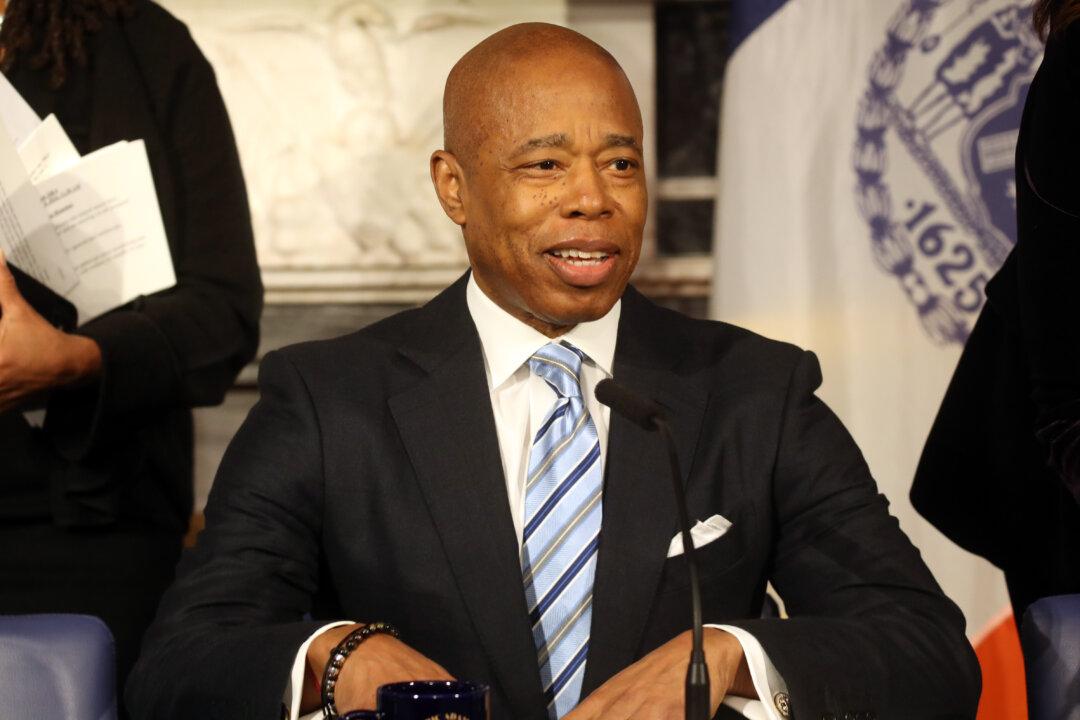New York City’s pilot program of giving illegal immigrant families pre-paid debit cards to buy food is under scrutiny, as a new report found that the initiative involves an open-ended contract that could potentially cost the city $2.5 billion each year, far greater than the $53-million-per-year price tag the mayor has promised.
Under the program, championed by Mayor Eric Adams, the city will hand out prepaid debit cards to 500 illegal immigrant families with children, giving each participant $12.52 each day. That translates to roughly $350 a month for an individual to spend on food and baby supplies.





